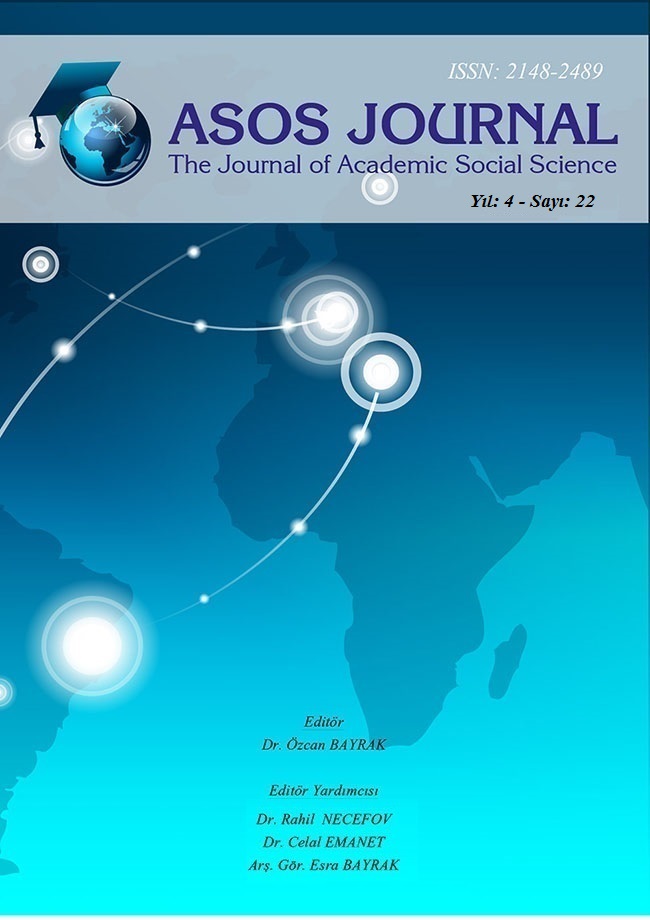Author :
Abstract
İşsizlik tüm dünyada büyük ve hayati sorunlardan biridir. İşsizlik ekonomide birçok ekonomik ve sosyal sorunlar yaratmaktadır. Bu çalışma işsizlik, gayri safi yurt içi hasıla, yabancı sermaye yatırımları ve enflasyon oranı arasındaki ampirik ilişkiyi inceleyerek 1982-2014 yılı arasında Çin’de işsizliğin belirleyicilerini analiz etmektedir. İşsizliğin belirleyicilerinin test edilmesinde Otoregresif Gecikmesi Dağıtılmış (ARDL) yöntem kullanılmıştır. Uzun dönem hesaplamaları, Çin’de gayri safi yurt içi hâsıla ile işsizlik oranı arasında negatif ve anlamlı ilişki olduğunu göstermiştir. Enflasyon oranı ve yabancı sermaye yatırımları ile işsizlik arasında pozitif ve anlamsız ilişki bulunmuştur. Kısa dönem sonuçları gayri safi yurt içi hâsıla, enflasyon oranı ve yabancı sermaye yatırımları ile işsizlik oranı arasında negatif ve anlamsız ilişki olduğunu göstermiştir. Hata düzeltme terimi (ECM-1) negatif ve istatistiksel olarak anlamlıdır. CUSUM ve CUSUMQ’nun %5 kritik sınırlar içinde yer alm
Keywords
Abstract
Unemployment is one of the big and vital problems in all over the world. Unemployment creates many economic and social problems in the economy. This study analyzes the determinants of unemployment in China over a period of 1982-2014 by examining the emprical relationship among the unemployment, gross domestic product, foreing direct investment and inflation rate. Autoregressive Distributed Lag (ARDL) approach has been applied to test determinants of unemployment. The long run estimated results reveal that GDP has negative and significant relationship with unemployment rate in China. Inflation rate and foreign direct investment has positive and insignificant relationship with unemployment rate. The short run results show that GDP, inflation and foreign direct investment has negative and insignificant relationship with unemployment rate. Estimated lagged error correction term (ECM-1) is negative and statistically significant. The CUSUM and CUSUMSQ are showing that the model is structura





